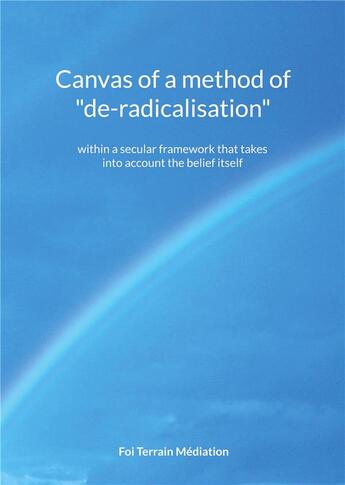Résumé:
Must not the word created by God fulfil its purpose? Surely the word must one day be delivered from evil, but how ? These questions are religious questions, as well as rational ones. In a country that respects human dignity, we are outlining a method of so-called de-radicalisation that looks... Voir plus
Must not the word created by God fulfil its purpose? Surely the word must one day be delivered from evil, but how ? These questions are religious questions, as well as rational ones. In a country that respects human dignity, we are outlining a method of so-called de-radicalisation that looks rationally at Islamist motivation. Progressiveness and dialogue will be necessary on the part of the supervisors.
The first part follows step by step the verses of the prayer that all Muslims know by heart, the FâtiHah - wich will allow a number of rational questions to be asked. If the pious man is to desire the God of the universes, can one indulge in the promise of rewards far below? If judgment is to come, can we anticipate it ourselves? Who will judge whom and how? What traps and manipulations are possible?
Then, in a short second part, it will remain to look at historical perspectives turned less towards the past than towards the future. Indeed, de-radicalising necessarily means achieving a certain working together, which is much richer (and more realistic) than living together. In this sense, far from suprematism and vicitimisation, de-radicalising can and must go as far as opening up prospects for civil understanding.
Donner votre avis














